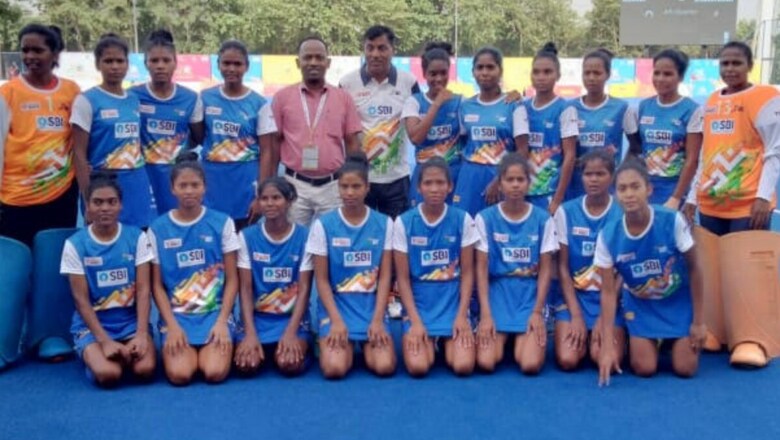
views
Much after their semifinal against Haryana, even as the shadows lengthened over the hockey stadium, the Jharkhand girls refused to pack their kits and leave.
Most of them in tears, they were overtaken by utter shock over their defeat in the Khelo India Youth Games here, refusing to even speak with each other.
“They came here to win, but they got overwhelmed by the setting, the live broadcast perhaps,” an equally devastated Narendra Saini, the coach, said. “They couldn’t process the speed and power of the Haryana girls either,” he added.
“I can tell you that they played at only 30 per cent of their natural game here,” he declared.
To their credit, the girls regrouped and came back for the bronze medal playoff, winning it 4-1.
For the 15 hockey players, who come mostly from one of the most backward, Maoist-affected areas of Jharkhand, hardships and setbacks are part of the landscape.
Yet, they don’t give any indication of their daily battles against life once they troop onto the turf.
Recently, they had secured second place in the National Junior Women’s Hockey Championship. More importantly, they impressed with their skill and passion, arriving in Panchkula as a team to watch.
“Deficiencies don’t create champions. These tribal girls could come this far because they are habituated to hardships, to fight,” the coach explained.
The Jharkhand Sports Association keeps them in a camp but offers a meagre diet of Rs 170 per day. During the pandemic, though, the girls were sent home where they subsisted on rice, salt and onion. They worked in paddy fields to support the family.
“Undernourishment is not the only issue. For the past three years, I’ve been seeking proper supply of hockey sticks and balls. In their absence, they practice with broken or borrowed sticks,” Saini, a Dronacharya Award recipient, who has been coaching the girls against odds, rued.
Another challenge is the girls don’t understand English. “They are at a loss as referees speak only in English,” he added.
Names like Nikki Pradhan and Salima Tete, also from the same tribal belt, who made it to the Olympic hockey team, inspire the girls. The difference is, their talent was matched with best training provided by centres created by the corporate sector, like the Tata group.
But for the others, like Sanjana Horo, Rupni Kumari, Nikki Kullu, Deepti Kullu, and the very young Bano Horo, it is still a grind. They refused to make eye contact despite repeated efforts. “They feel embarrassed of their background,” Saini said matter-of-factly.
“SAI and KIYG are doing their best to promote talent; but state governments need to do a lot more,” he argued.
‘We can’t put push these players beyond a point. It may result in injury in the absence of a good diet consisting of enough proteins, minerals and vitamins. To stretch physical and psychological endurance players require a healthy diet for body and training for mind,” Saini revealed.
Read all the Latest News , Breaking News , watch Top Videos and Live TV here.



















Comments
0 comment